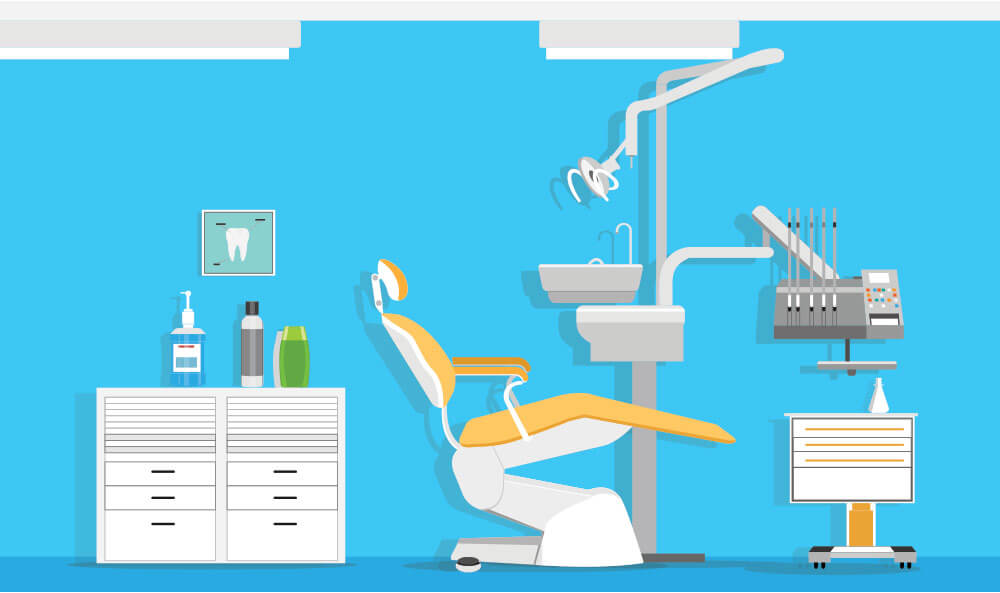Most Guard Soldiers are very aware that physical fitness is key to maintaining medical and combat readiness. Perhaps less known, but no less true, is that a healthy mouth is equally important to maintaining Soldier readiness. Here are 10 things you can do to stay on top of your dental health.
1. Get your annual dental exam. Soldiers are required to see a dentist at least once a year – and for good reason! Not only do regular dental exams keep Soldiers compliant with Army regulation, they also help to prevent oral disease and allow for early identification of potential problems and recommended treatments.
2. Brush twice a day. Brushing your teeth regularly – at least twice a day – will guard against cavities and other dental problems.
3. Floss every day. It can be hard to start a habit of daily flossing, but it is an important step in keeping your teeth and gums healthy as flossing helps remove the food debris and plaque that cause tooth decay and gum disease. Keep in mind that you do not need to wait until you are getting ready for bed to floss – getting your head to the pillow will win out over flossing almost every night! Try instead to keep floss in the kitchen and use it right after dinner. Or tape a pack of floss to the remote control and use it while you watch TV.
4. Avoid all tobacco use. Tobacco not only puts your overall health and life at risk, but can have detrimental effects on your mouth as well. Smoking and chewing tobacco cause bad breath and stained teeth. It can also lead to gum disease and more serious health concerns like cancer.
5. Use a mouth guard. A mouth guard will help keep your pearly whites intact. If needed, it can help you stop grinding your teeth, may help reduce jaw problems and can protect your mouth during physical activity. Generic and semi-custom (boil and bite) mouth guards may be purchased over the counter at most pharmacies. Custom-fitted mouth guards are available through your dentist’s office. Two different types of mouth guards are available.
- Sleep mouth guards that prevent tooth wear and cracking caused by nighttime grinding
- Sports mouth guards that protect the teeth and mouth during physical activities
- Choose the guard that is right for you based on your needs and activities
6. Drink water often. It’s important to keep your mouth hydrated. Drinking water keeps your saliva glands healthy. Saliva helps wash away food from your teeth and gums, prevents cavities by neutralizing harmful acids and reducing bacteria, and keeps the surface of your teeth strong.
7. Limit sugar intake. Treating yourself to a dessert or a sugary snack is not bad for you – as long as you do not overdo it. Eating sugary foods too often can cause many health problems, including tooth decay. If you chew gum, make sure it is sugar-free. If you have a sugary treat, be sure to rinse your mouth with water or mouthwash afterwards to remove any sticky residue.
8. Use a straw when drinking sugary drinks. Who knew straws make for good oral hygiene? Drinking with a straw deposits juice at the back of the throat, which keeps it away from your teeth and avoids having them immersed in a sugar bath.
9. Ask about side effects from your medicine. Some medications may have side effects that affect your teeth. For example, more than 500 over-the-counter and prescription medications are known to cause dry mouth, and a dry mouth may lead to cavities. Check with your pharmacist about your medication’s potential side effects and tell your dentist if you are experiencing unusual changes in your mouth.
10. Eat a healthy diet. A well-balanced diet is good for your health, head to toe. This includes your mouth. Minerals like calcium and fluoride help support healthy teeth, gums and bones. Calcium is found in milk, green leafy veggies, cheese and nuts. Fluoride is prevalent in most water systems, and is also found in fruits, veggies and tea.
Guarding your mouth is easy once you know what to do. To find a dentist in your area, go to GYH.Tips/DentalCare or talk to your medical readiness NCO.
Submitted by GuardYourHealth.com



